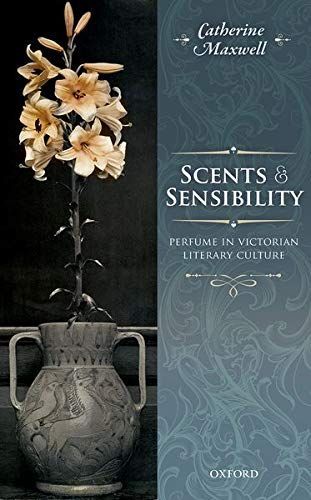
Scents and Sensibility Perfume in Victorian Literary Culture
This lively, accessible book is the first to explore Victorian literature through scent and perfume, presenting an extensive range of well-known and unfamiliar texts in intriguing and imaginative new ways that make us re-think literature's relation with the senses. Concentrating on aesthetic and decadent authors, Scents and Sensibility introduces a rich selection of poems, essays, and fiction, exploring these texts with reference to both the little-known cultural history of perfume use and the appreciation of natural fragrance in Victorian Britain. It shows how scent and perfume are used to convey not merely moods and atmospheres but the nuances of the aesthete or decadent's carefully cultivated identity, personality, or sensibility. A key theme is the emergence of the olfactif, the cultivated individual with a refined sense of smell, influentially represented by the poet and critic Algernon Charles Swinburne, who is emulated by a host of canonical and less well-known aesthetic and decadent successors such as Walter Pater, Edmund Gosse, John Addington Symonds, Lafcadio Hearn, Michael Field, Oscar Wilde, Arthur Symons, Mark André Raffalovich, Theodore Wratislaw, and A. Mary F. Robinson. This book explores how scent and perfume pervade the work of these authors in many different ways, signifying such diverse things as style, atmosphere, influence, sexuality, sensibility, spirituality, refinement, individuality, the expression of love and poetic creativity, and the aura of personality, dandyism, modernity, and memory. A coda explores the contrasting twentieth-century responses of Virginia Woolf and Compton Mackenzie to the scent of Victorian literature.